During menopause, it’s important to rethink your nutrient needs.
Menopause can be a life-changing experience. It is a time when we are subjecting many areas of our lives to scrutiny: our careers, our relationships, our health and our well-being.
Gradually, the ovaries stop working and produce less and less of the female sex hormone estrogen. But this does not happen little by little. Instead, your body sometimes produces more, sometimes less of the female sex hormone. This fluctuating hormone level during menopause is the reason why we also react physically and emotionally differently to stress.
But that’s not all. Menopause is accompanied by a whole series of changes in our bodies. This is because hormones have performed many different tasks up to now. For example, hormones have slowed the loss of bone mass and kept our mucous membranes moist, or impacted cholesterol levels.
No wonder that these changes in the body bring numerous consequences and side effects.
During this time, it is very important to listen to your body and accept that the physical changes will also require changes in your health routine.
During menopause, it’s especially important to rethink your nutrient needs. In this way, negative developments can be prevented.
But don’t worry about it! We will help you! In this article we explain to you which nutrients you should pay special attention to from now on!
Are you already in menopause?
Menopause or perimenopause is a phase that can last 5-10 years. It’s the path to menopause, which usually starts gently in your early 40s and continues to manifest itself. When you go through perimenopause and are in menopause, several processes take place in your body.
- Your estrogen and progesterone levels drop
- Your testosterone decreases
- Your cyclical hormone balance gets out of whack
- Your metabolism slows down and you may put on weight
- Your body processes certain nutrients differently
- You may suffer from sleep disorders
- You may have hot flushes
- You may suffer from vaginal dryness
- Your bone density may decrease
- You may suddenly suffer from high blood pressure
You can find out what other symptoms may indicate that you are going through the menopause in our article“These are the first signs of the perimenopause”. There you will also find a handy symptom checklist.
These physical changes during menopause require you to rethink your diet and nutritional intake. Because that has a big impact on your well-being during menopause and on your health.
Menopause requires a change in your diet
You need to realize that menopause means the beginning of a new phase in your life. Your metabolism slows down and your intestines can’t absorb and process some nutrients as well as before. This means that you can gain weight slowly but steadily during this phase of your life, even though you eat just as much as before.
The simplest solution to this problem is to eat about 200 kilocalories less per day from now on. Make sure you eat as many fruits and vegetables as possible and less pasta, cakes or convenience foods.
But don’t forget: because of the changes in your body, you now need less energy but more nutrients at the same time. So if you eat a little less now, you still need to make sure you’re getting enough nutrients. Nutritional supplementation can be helpful in this regard.
Paying attention to your diet during menopause can also lower your risk for many diseases that often occur during midlife, such as high blood pressure, type 2 diabetes, high cholesterol, heart disease and more. Diet is also the key for you if you want to avoid hormone replacement therapy and prefer to go the natural way. Plus, you feel good about yourself when you eat healthy, and that boosts your self-confidence.
 The most important nutrients in menopause
The most important nutrients in menopause
B vitamins in menopause
During menopause, B vitamins are important for you because they help convert the nutrients you eat into cellular energy, keeping you energized and counteracting fatigue and flabbiness. The eight B vitamins work together as a team. They also ensure that your adrenal glands are not overloaded by stress and can continue to produce estrogen and progesterone.
Vitamins B6 and B12 also support the production of serotonin, known as the “feel-good” hormone, during menopause. It helps stabilize your mood during menopause. This improves your sleep and creates well-being.
A good B vitamin intake is also essential for your nerves. Vitamins B1, B3 and B12, in particular, are needed to strengthen the myelin sheaths that surround your nerve cells so that nerve messages can be sent efficiently. This is crucial for your body to better manage stress.
The B vitamins also help your liver with hormone detoxification during menopause. It breaks down excess hormones so that they can then be effectively excreted through the intestines. It is therefore particularly important that the liver is not overloaded and is optimally supplied with the necessary nutrients.
You will find a complete and optimally dosed natural vitamin B complex in our organic multivitamin for women MRS DO-IT-ALL 45+, specially adapted to menopause.
Vitamin D
For your body to absorb calcium well, vitamin D is important. This is because vitamin D promotes the absorption of calcium from food into the body and its incorporation into bone mass. Vitamin D is also called the sunshine vitamin because the body makes it from sunlight. But unfortunately, few people manage to enjoy enough sunlight (30 minutes per day) every day. Therefore, it is recommended to take vitamin D in the form of supplements.
That’s why our organic menopause multivitamin contains 25 micrograms of vitamin D (=1,000 I.U.) daily for your bone and immune health.
Vitamin C
Vitamin C is necessary for collagen formation and for strong connective tissue. It also supports the immune system and neutralizes the aggressive free radicals that are constantly produced during the very normal metabolic processes. These substances can damage your cells. A good supply of vitamin C counteracts this. You need at least 80 milligrams of vitamin C daily. Eat enough fruits and vegetables or take daily vitamin C supplements to ensure your body is supplied with the vitamin C it needs, especially during menopause.
With our organic multivitamin for menopause Mrs. Do-It-All 45+ you ensure the optimal daily vitamin C supply.
Antioxidants
Oxidative stress plays an essential role in the aging process and results from the overproduction of free radicals that overwhelm the body’s antioxidant defense mechanisms. The sharp drop in estrogen during menopause has been shown to increase oxidative stress in the body. Indeed, at low concentrations, the hormone has a pro-oxidant effect. (2)
Plant antioxidants such as beta-carotene (the plant precursor of vitamin A), antioxidant vitamins C and E, and the antioxidant trace elements selenium and zinc from organic plants in Mrs. Do-It- All 45+ scavenge free radicals and neutralize oxidative stress.(3)
With regard to menopausal symptoms, vitamins C and E have been shown to reduce the intensity and number of hot flushes by stimulating adrenal function. (4)
Iron
Your body needs iron to make healthy red blood cells so they can carry plenty of oxygen to all parts of your body. Your muscles also need iron. But in menopause you need less iron per day. Younger women need about 14 milligrams of iron per day. During menopause, however, your needs are lower. That is why our Mrs Do It All 45+ contains nine milligrams of this mineral.
Chrome
During menopause, your body is more sensitive to sugar. This increases the risk of insulin resistance and thus of diabetes. When your blood sugar levels are out of balance, your body also produces more stress hormones. This promotes weight gain especially in the middle of the body. Therefore, pay special attention to your blood sugar level.
An extra dose of the natural trace element chromium can help. It regulates your blood sugar levels and helps you maintain a healthy balance. You will therefore find an optimal dose of chromium in our organic multivitamin for menopause Mrs Do-It-All 45+. You can read more about how to keep your blood sugar levels in balance in our article “Blood sugar – the secret to losing weight”.
Cruciferous vegetables
Cruciferous vegetables such as broccoli, kale and cauliflower contain so-called sulforaphanes. These are plant substances that have a positive effect on oestrogen metabolism. ( 4) It has also been scientifically proven that these mustard oils protect against various types of cancer, reduce the risk of cardiovascular disease and can help with osteoporosis (5).
That’s why a blend of various organic cruciferous extracts is an essential ingredient in our Mrs Do It All Organic Multivitamin for Women 45+. Organic Cruciferous Blend supports your body during the sensitive transition period from the fertile phase of life to menopause.
-
Bestseller
Mrs Do-It-All 45+
Organic Multivitamin Complex Premium for menopausal women, All-In-One!79,90 €1.997,50 € / kg
Our natural calcium complex BONE NANZA makes it easy for you: the formula contains all three nutrients that support good bone health in a single supplement: plant-based calcium and magnesium from organic algae and vitamin D3 from organic lichen.
-
Bestseller
Bone Nanza
Plant-based organic calcium complex from organic red lime algae with natural magnesium and vitamin D3ab 29,90 €486,18 € / kg
What omega fatty acids do you need during menopause?
During menopause, omega fatty acids can play a positive role in your health and well-being. This is proven by many studies. We present you the most important fatty acids and their proven effect:
Omega-3
These fatty acids include EPA (eicosapentaenoic acid) and DHA (docosahexaenoic acid), which are found in fish or seaweed, as well as the pure plant essential fatty acid alpha-linolenic acid (ALA), which is converted to EPA and DHA in the body. EPA and DHA are longer-chain fatty acids that have been shown to control the progression of chronic diseases.
EPA has been shown to help maintain heart and circulatory health, promote joint mobility, support the body’s anti-inflammatory action and balance blood sugar levels.
DHA can help maintain a positive mood and protect the eyes, brain and nervous system, as well as the immune system.
Omega-6 – linoleic acid
You may have already taken this fatty acid to support the hormones in your menstrual cycle. It has been found to reduce hot flushes in this new phase of your life. It also contributes to improved body composition, prevents insulin resistance, and reduces inflammation fueled by your lower estrogen levels.
Omega-7 – palmitoleic acid
It is contained in sea buckthorn oil and helps with skin and vaginal dryness during the menopause, which is caused by the drop in oestrogen levels. It also helps regulate fat and sugar metabolism.
Omega-9 – oleic acid or oleic acid
It is found in olive oil but also in sea buckthorn oil and is part of the “Mediterranean diet”, which is known to reduce the incidence of coronary heart disease.
The supplement that combines all omega fatty acids
OILALALA Skin Omega Complex by Ogaenics, as an organic dietary supplement, contains a purely plant-based formula that provides a balanced blend of all omega fatty acids. These include omega-3 (as alpha-linolenic acid), omega-6 (as linoleic acid), omega-7 (as palmitoleic acid) and omega-9 (as oleic acid). It is also rich in antioxidants and plant sterols, which are important for your health. Oilalala also contains the natural provitamin A as beta-carotene and vitamin E. Vitamin A supports the normal function of skin and mucous membranes, while vitamin E protects your cells from oxidative stress during menopause.
Studies show that OILALALA Skin Omega Complex can alleviate the problem of dry skin, eyes and vaginal mucous membranes during menopause in just four weeks. The capsules are made in Germany, are free of additives, 100% vegan and packed in high quality apothecary jars.
Probiotics as support during menopause
During menopause, many women find that their digestion does not function as smoothly as it used to. Constipation, flatulence and bloating are not uncommon. Cramps also occur and some suffer from alternating constipation and diarrhea.
Hormonal changes during this time play an important role in these problems. It is especially important to regularly eat fiber in the form of vegetables, fruits and whole grain products, as well as probiotic foods with lactic acid bacteria. This is how a sluggish bowel gets going again and up to speed.
With a strong gut, nutrients can also be better absorbed, ingredients are better tolerated, and the body’s defenses and immune system are strengthened. With a healthy gut and a well-functioning digestive system, your body is also able to better balance the estrogen levels in your body. Because good bacteria help healthy metabolism and utilization of hormones in the body, which supports hormonal balance. Positive side effect of this: you have fewer hot flashes.
A daily dietary supplement with a variety of bacterial strains and prebiotics can therefore positively support your transition into the new phase of life, boost the immune system and mood, and promote faster elimination of excess hormones.
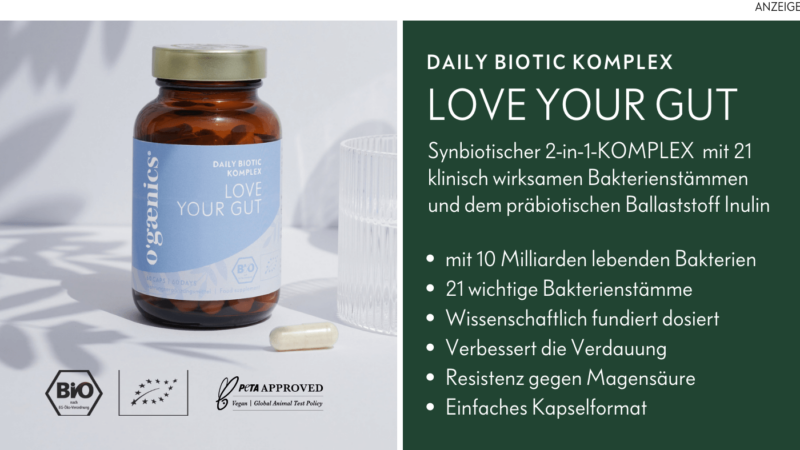
-
Bestseller
Love Your Gut
Bio Daily Biotic Complex Premium for the gut: 21 bacterial strains plus organic fiberab 39,90 €2.660,00 € / kg
“Evening Primrose(Oenothera biennis) Oil in Management of Female Ailments.”
Mahboubi, Mohaddese, Journal of menopausal medicine vol. 25,2 (2019): 74-82.
“Linoleic acid, an omega-6 fatty acid that reduces risk for cardiometabolic diseases: premise, promise and practical implications.”
Belury, Martha Ann, Current opinion in clinical nutrition and metabolic care vol. 26,3 (2023): 288-292.
“Erythrocyte linoleic acid, but not oleic acid, is associated with improvements in body composition in men and women.”
Belury, Martha A et al, Molecular nutrition & food research vol. 60.5 (2016): 1206-12.
“Abundance of active ingredients in sea-buckthorn oil.”
Zielińska, Aleksandra, and Izabela Nowak, Lipids in health and disease vol. 16.1 95. 19 May. 2017
“The bioactive components as well as the nutritional and health effects of sea buckthorn.”
Ren, Ruru et al, RSC advances vol. 10,73 44654-44671. 17 Dec. 2020
“Effect of Omegia® softgel on female mucous membrane and overall wellness”
Tina Yuen, MD, Michael Yuen, Phyllis Nip, Ken Wong (2020)
“Effects of oral supplementation and topical application of supercritical CO2 extracted sea buckthorn oil on skin aging of female subjects.”
B. Yang et al, Journal of Applied Cosmetology. 27 (2009), 13-25
“Effects of sea buckthorn oil intake on vaginal atrophy in postmenopausal women: a randomized, double-blind, placebo-controlled study.”
Larmo, Petra S et al, Maturitas vol. 79,3 (2014): 316-21


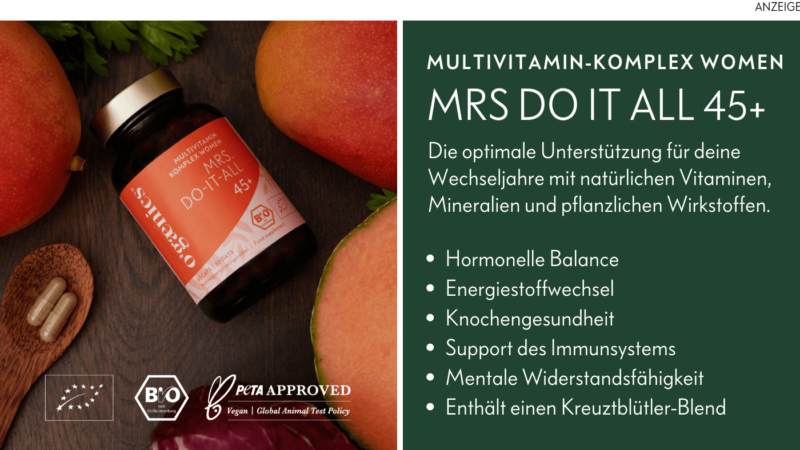 The most important nutrients in menopause
The most important nutrients in menopause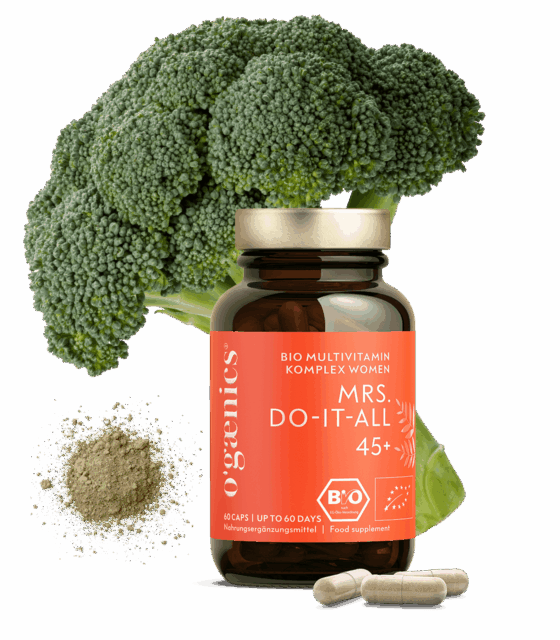
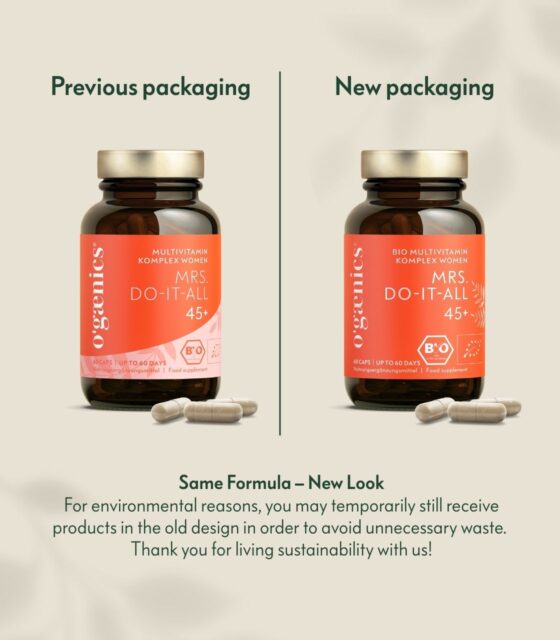
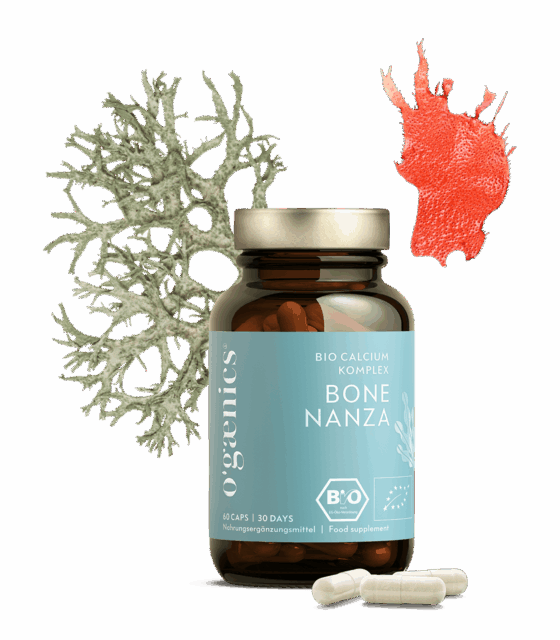

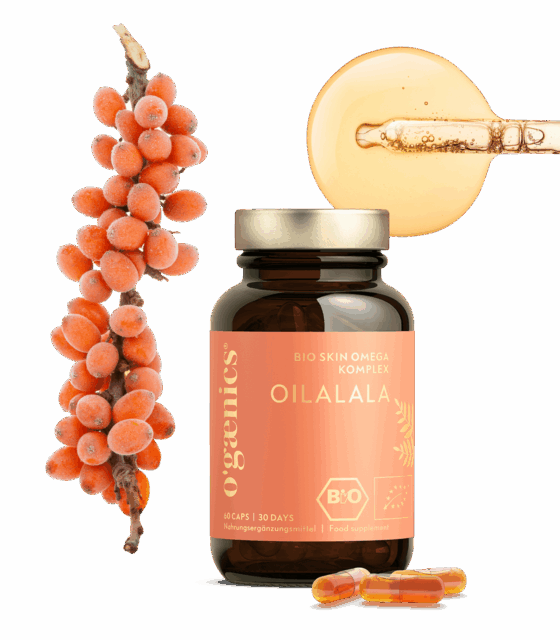
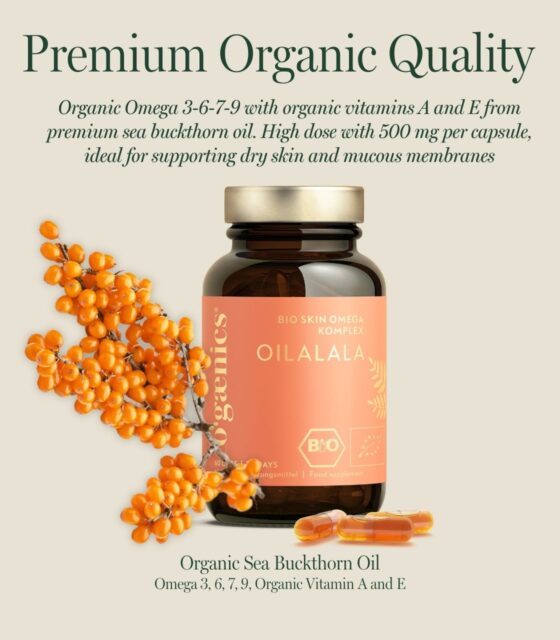





 No products in the cart.
No products in the cart.